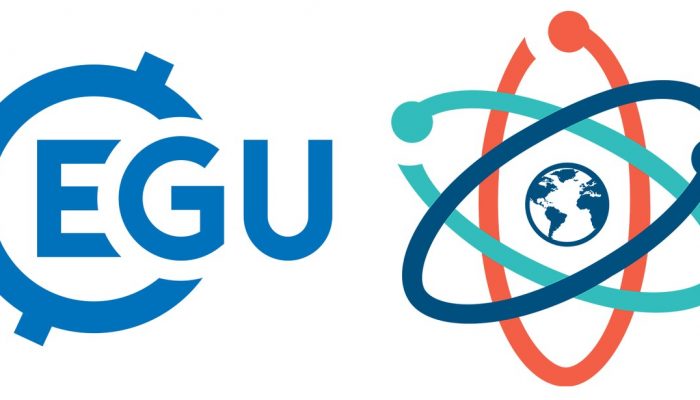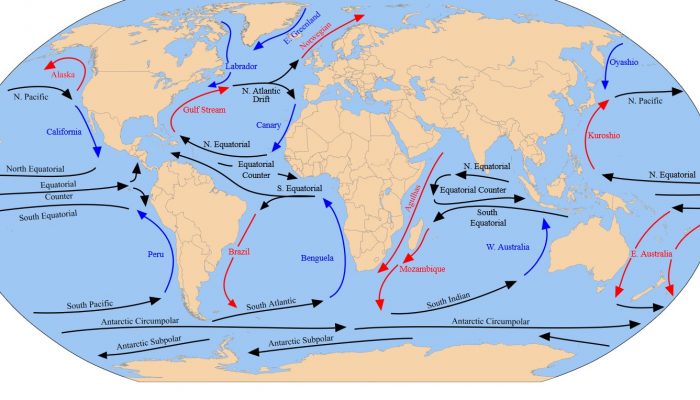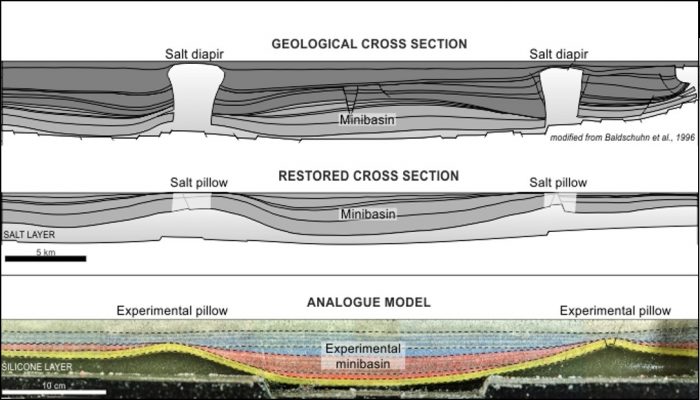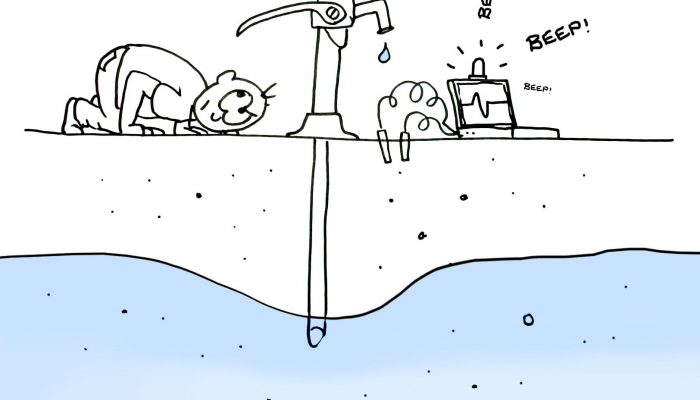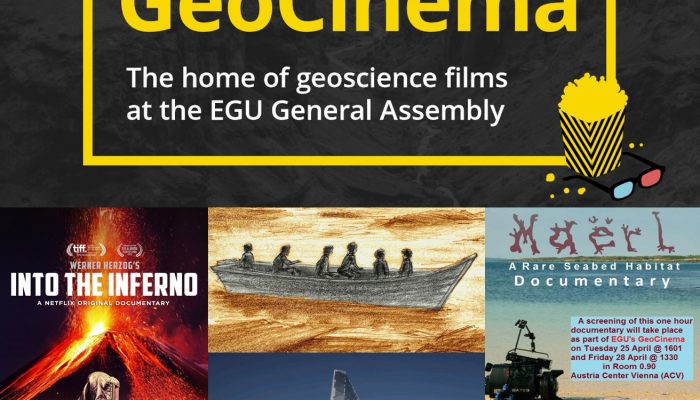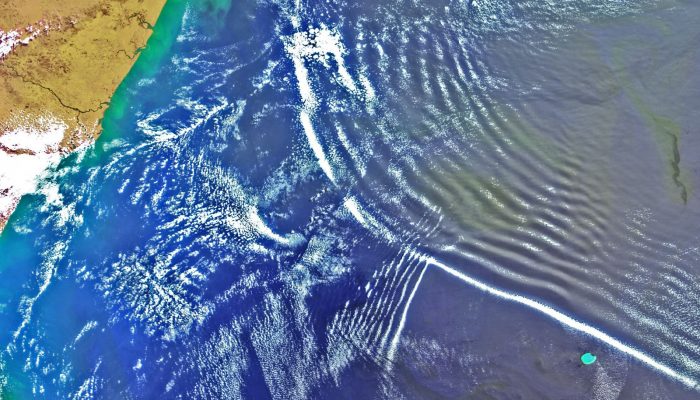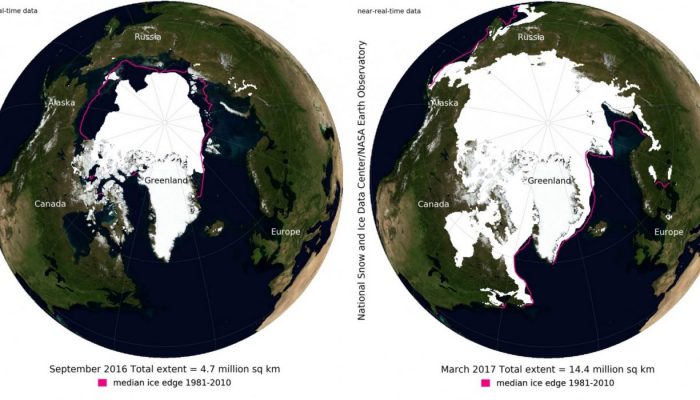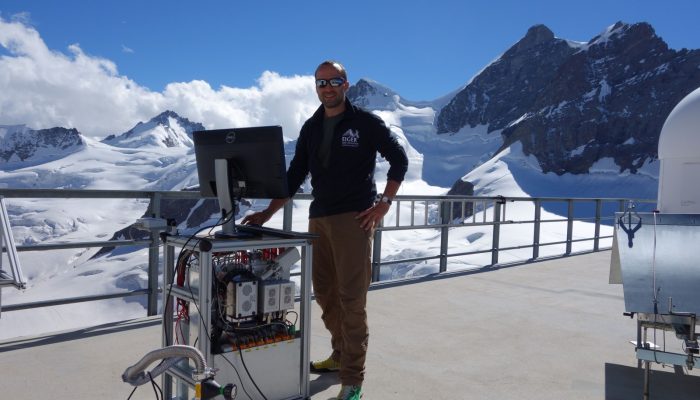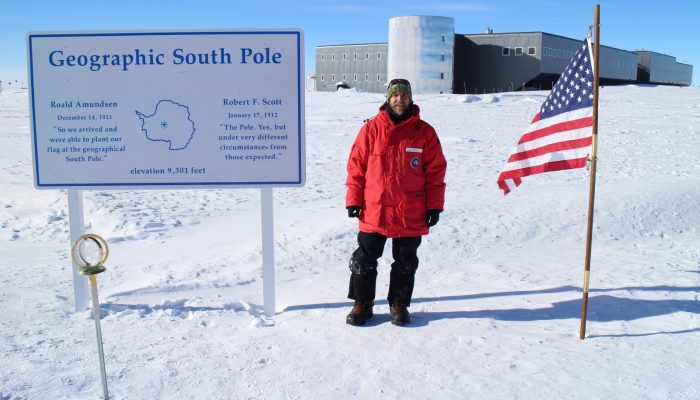On 22 April, Earth Day and the day before the start of the EGU General Assembly, scientists and science enthusiasts across the globe will be marching to celebrate science and to call for the safeguarding of its future. While the main march is taking place in Washington D.C. in the US, there are hundreds of satellite marches happening around the world, including in Vienna. Representatives of both t ...[Read More]
If you didn't find what you was looking for try searching again.
GeoLog
Knowing the ocean’s twists and turns
Navigating the ocean demands a knowledge of its movements. In the past, sailors have used this knowledge to their advantage, following the winds and the ocean currents to bring them on their way. Prior to mutiny in 1789, Captain Bligh – on the HMS Bounty – famously spent a month attempting to pass westward through the Drake Passage, around Patagonia’s Cape Horn. Here the westerly ...[Read More]
Tectonics and Structural Geology
Minds over Methods: Reconstruction of salt tectonic features
What is the influence of salt tectonics on the evolution of sedimentary basins and how can we reconstruct such salt features? Michael Warsitzka, PhD student at the Friedrich Schiller University of Jena, explains which complementary methods he uses to better understand salt structures and their relation to sedimentary basins. Enjoy! Reconstruction of salt tectonic features from analogue mode ...[Read More]
WaterUnderground
Musical groundwater?
Post by Kevin Befus, University of Wyoming I don’t mean to get your hopes up, but keep them up there. I’m not talking about recording the sonorific excitement that is groundwater flow. And, I’m not talking about the squeak of a pump handle, the gurgling of a spring, the grumble of a generator, or the roar of a drill rig. Rather, I want to share with you some songs that reference groundwater in one ...[Read More]
GeoLog
GeoCinema at the 2017 General Assembly
GeoCinema is the home of geoscience films at the EGU General Assembly. This year features over 50 fantastic films from across the geosciences, so you can step into some soil science, dive into deep ocean investigations, catch a glimpse of climate change research and more! The GeoCinema runs almost continuously throughout the conference, with short films, documentaries and feature length production ...[Read More]
GeoLog
Imaggeo on Mondays: Atmospheric gravity waves
From the tiny vibrations which travel through air, allowing us to hear music, to the mighty waves which traverse oceans and the powerful oscillations which shake the ground back and forth during an earthquake, waves are an intrinsic part of the world around us. As particles vibrate repeatedly, they create an oscillation, which when accompanied by the transfer of energy, creates a wave. The way in ...[Read More]
Geomorphology
European Critical Physical Geography – or how power relations can be considered during research set ups
– written by Christian Schneider (University of Leipzig) and Sabine Kraushaar (University of Vienna) – In March this year the first European Critical Physical Geography (CPG) Workshop took place in Berlin bringing together 19 scholars from different European and American research institutions and backgrounds under the lead of Rebecca Lave and Stuart Lane and the financial support by their ...[Read More]
Cryospheric Sciences
Image of the Week – The ups and downs of sea ice!
The reduction in Arctic sea-ice cover has been in the news a lot recently (e.g. here) – as record lows have been observed again and again within the last decade. However, it is also a topic which causes a lot of confusion as so many factors come into play. With this Image of the Week we will give you a brief overview of the ups and downs of sea ice! In general, Arctic sea ice is at its minim ...[Read More]
GeoLog
GeoTalk: How are clouds born?
Geotalk is a regular feature highlighting early career researchers and their work. In this interview we speak to Federico Bianchi, a researcher based at University of Helsinki, working on understanding how clouds are born. Federico’s quest to find out has taken him from laboratory experiments at CERN, through to the high peaks of the Alps and to the clean air of the Himalayan mountains. His innova ...[Read More]
Cryospheric Sciences
A year at the South Pole – an interview with Tim Ager, Research Scientist
What is it like to live at the South Pole for a year? A mechanical engineer by trade, Tim Ager, jumped at the opportunity to work for a year as a research scientist at Amundsen-Scott South Pole Station. When not traveling on various adventures he lives in Austin, Texas, and recently took the time to answer a few questions about his time at Pole. What goes on at Amundsen-Scott South Pole Station? ...[Read More]

